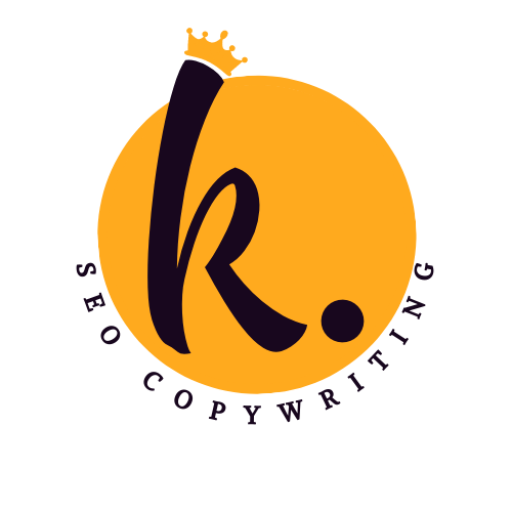How to Start Copywriting with No Experience | 5 Steps to Become A Pro

What is Copywriting and Why Should You Care?
Copywriting is writing words that sell. It’s about creating content that persuades people to take action. This could be buying a product, signing up for a newsletter, or clicking on a link.
Why should you care about copywriting? Because it’s everywhere. From ads to websites, copywriting drives sales and engagement. Knowing how to write good copy can open up many job opportunities.
The Different Types of Copywriting
There are several types of copywriting. Each type serves a different purpose and audience. Here are the main ones:
Web Copy
This is the text you see on websites. It includes home pages, about pages, product pages, and more. Good web copy is clear and easy to read. It guides visitors and helps them find what they need.
Email Marketing Copy
Email marketing copy is all about writing emails that people want to read and act on. This could be newsletters, promotional emails, or follow-up emails. The goal is to keep readers engaged and encourage them to take action.
Social Media Copy
Social media copy includes posts on platforms like Facebook, Twitter, Instagram, and LinkedIn. It needs to be short, catchy, and engaging. The aim is to get people to like, comment, share, or click through to a website.
Pro Tips
Take Online Courses
Enroll in online courses to gain structured knowledge.
Essential Skills for Aspiring Copywriters
To start copywriting with no experience, you need to develop some key skills. Here are the most important ones:
Strong Writing Fundamentals
Good copy starts with good writing. You need to have strong grammar and punctuation skills. Your writing should be clear and free of errors. This makes your copy easy to read and understand.
Understanding Your Audience
Knowing who you’re writing for is crucial. You need to understand your audience’s needs, wants, and pain points. This helps you write copy that speaks directly to them. Building a persona can help with this.
The Power of Persuasion
Copywriting is about persuading people. It would help if you use emotional triggers and storytelling to make your copy compelling. Think about what motivates your audience and use that to guide your writing.
Pro Tips
Practice Daily
Write every day to improve your skills and build confidence.
Building Your Copywriting Foundation

Dive Deep into Copywriting Education (Free and Paid Resources)
To start copywriting with no experience, learning is key. Here are some simple ways to learn:
Online Courses and Certifications
Online courses are a great way to learn copywriting. Websites like Udemy, Coursera, and Skillshare have courses taught by experts. Look for courses with good reviews. Some courses also give you certificates when you finish.
Books and Blogs by Copywriting Experts
Books and blogs can teach you a lot. Some classic books on copywriting are “The Copywriter’s Handbook” by Robert Bly and “Ogilvy on Advertising” by David Ogilvy. For blogs, check out Copyblogger and Neil Patel’s blog. They offer tips and advice from top copywriters.
YouTube Channels for Visual Learners
If you like learning by watching videos, YouTube is great. Channels like “Kaydot with Faisal Kiani” and “Alex Cattoni” have lots of tutorials and tips. These videos can help you understand and practice copywriting.
Pro Tips
Start a Blog
Write blog posts to practice and display your writing.
Hone Your Craft: Practice Makes Perfect
The best way to get better at copywriting is to practice. Here are some ways to do that:
Start a Copywriting Blog
Create your own blog to practice copywriting. Write posts on different topics and try different styles. This helps you find your voice and get better. Plus, it’s a great way to show your skills to others.
Content Repurposing
Take something you’ve already written and change it into a new format. For example, turn a blog post into social media captions or an email. This helps you practice writing for different platforms.
Participate in Copywriting Challenges and Contests
Join copywriting challenges and contests. These are often held by online communities and copywriting blogs. They give you prompts and deadlines, pushing you to write often and creatively.
Plus, you can get feedback from other writers, which helps you improve.
Building your copywriting foundation takes time, but with these resources and practices, you’ll become a skilled copywriter.
Pro Tips
Create Spec Work
Develop sample projects to showcase your abilities.
Crafting Your Copywriting Portfolio (Even Without Experience)

Spec Work: Showcase Your Skills with Fictional Projects
You can start building your portfolio even if you don’t have any clients yet. Create spec work, which means writing examples based on fictional projects. Here’s how:
Identify Target Markets and Create Spec Copy
Think about the types of businesses you want to write for. Are you interested in tech companies, health and wellness, or fashion? Pick a few target markets and create sample copy for them. This could be an ad, a blog post, or a product description.
Tailor Your Spec Work to Different Copywriting Niches
Show your versatility by creating spec work for different niches. Write a sales page for a tech gadget, an email campaign for a fitness program, and social media posts for a fashion brand. This will show potential clients that you can handle various types of copywriting.
Volunteer or Offer Pro Bono Services
Another way to build your portfolio is to volunteer your services. Offer to write for non-profits, small businesses, or friends who need help with their websites or marketing. This gives you real-world experience and helps you build a diverse portfolio.
Case Studies: Repurpose Freelance Projects into Compelling Case Studies (if applicable)
If you’ve done any freelance projects, turn them into case studies. A case study shows what you did, how you did it, and the results you achieved. This helps potential clients see the value you can bring. If you haven’t done any freelance work yet, don’t worry. Start with spec work and volunteer projects, and build from there.
Creating a strong portfolio takes time, but with spec work, volunteer projects, and case studies, you can show off your copywriting skills and attract clients.
Pro Tips
Volunteer
Offer your services for free to build your portfolio.
Landing Your First Copywriting Clients or Job (Strategies for Beginners)

Building Your Online Presence (Freelancing Platforms & Social Media)
To start copywriting with no experience, you need to be visible online. Here’s how:
Optimizing Your Online Profiles (Freelance Platforms & LinkedIn)
Create profiles on freelance websites like Upwork, Fiverr, and Freelancer. Make sure your profiles are complete and professional. Highlight your skills, experience, and samples of your work. Do the same for your LinkedIn profile. Use a clear photo, write a catchy headline, and describe your skills and experience.
Creating a Compelling Writer’s Website or Blog
Having your own website or blog makes you look professional. Create a simple website with your portfolio, services, and contact information. Write a few blog posts to show your writing skills. This helps potential clients see what you can do.
Pro Tips
Study Great Copy
Analyze successful ads and websites to see what works.
The Art of the Pitch: How to Approach Potential Clients
Reaching out to potential clients can be scary, but it’s necessary. Here’s how to do it:
Crafting a Winning Proposal That Showcases Your Value
When you pitch to a potential client, make sure your proposal is clear and to the point. Highlight what you can do for them and how it will benefit their business. Use examples from your portfolio to show your skills. Be professional and friendly.
Networking with Businesses and Marketing Agencies
Join local business groups, attend events, and connect with people online. Reach out to businesses and marketing agencies that might need copywriters. Networking can help you find clients and build relationships that lead to more work.
Freelance Rates and Setting Boundaries
When you start getting clients, it’s important to know your worth. Research what other copywriters charge and set your rates accordingly. Be clear about your rates and what services you offer. Set boundaries to avoid overworking and ensure you get paid fairly.
Landing your first copywriting clients or job takes effort. You can start your copywriting career by building your online presence, pitching effectively, and setting clear rates.
Pro Tips
Join Copywriting Groups
Engage with online communities for feedback and support.
Bonus: Essential Tools and Resources for New Copywriters

Grammarly and Similar Tools
Grammarly helps you write without mistakes. It checks your spelling, grammar, and punctuation. Using Grammarly makes your writing clear and correct.
Hemingway Editor is another good tool. It shows you how to make your writing simple and easy to read.
Headline Generators and Brainstorming Tools
Headlines are very important. They grab the reader’s attention. Tools like CoSchedule Headline Analyzer help you create strong headlines. Brainstorming tools like MindMeister help you come up with new ideas and organize them.
Copyright-Free Image and Video Resources
Images and videos make your writing more interesting. But you need to use ones that are free to use. Websites like Unsplash, Pexels, and Pixabay have lots of free images and videos. You can use these in your work without worrying about legal issues.
Using these tools and resources will help you improve your copywriting and make your work look more professional.
Pro Tips
Use Free AI Writing Tools
Utilize tools like Chatgpt, Gemini, and Hemingway App, to refine your writing.
Conclusion: Your Copywriting Journey Begins Now!
Recap: Key Steps to Launching Your Copywriting Career
Starting as a copywriter with no experience is possible. Here are the key steps:
- Learn What Copywriting Is: Understand that it’s about writing to sell.
- Improve Your Writing Skills: Read, write, and study grammar.
- Learn Copywriting Basics: Take courses and read books.
- Practice Writing: Create a blog and write every day.
- Build a Portfolio: Use spec work and volunteer projects.
- Find Clients: Optimize your online profiles and pitch to clients.
Stay Curious, Keep Learning, and Embrace Growth
Always stay curious and keep learning. The world of copywriting changes fast. Read blogs, watch videos, and take new courses. Practice your skills and try new things. Embrace growth and be open to feedback.
Stay Connected with Kaydot
Stay connected with Kaydot – a paradise for SEO copywriting aspirants. You can start copywriting with no experience.
Kaydot offers resources, tips, and a supportive community to help you grow. Your copywriting journey starts now!




